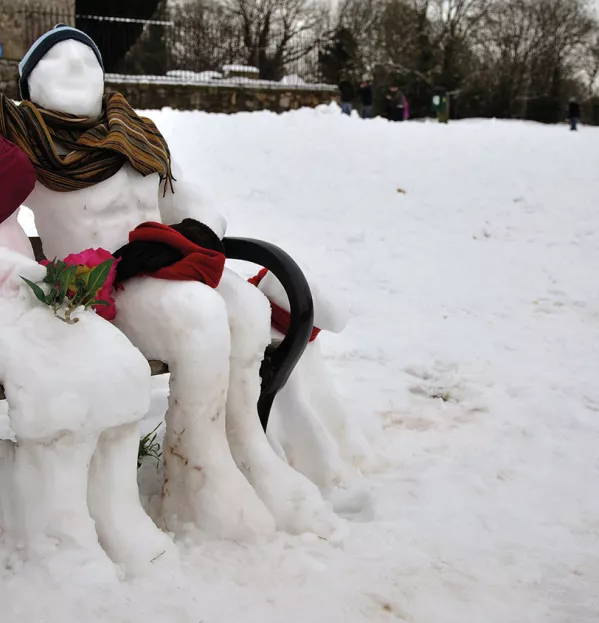Snow days can lead to a flurry of romances
Share
Snow days can lead to a flurry of romances
https://www.tes.com/magazine/archived/snow-days-can-lead-flurry-romances

What is the most tantalising phrase heard at this time of year? It’s when a weather forecaster mentions the “s” word - but then adds “falling on higher ground”.
For some colleagues I have known, snow days have turned out to be more than just a day off school.
Two former colleagues, for instance - one taught chemistry, the other languages - separately arrived in school one snowy morning having missed the message that the school was closed. As the weather significantly deteriorated into a storm, they found themselves trapped there.
Virtual strangers beforehand, they had the unique opportunity to chat together alone in the staffroom all day and found out that they liked each other very much. They then walked miles through the snow to where one of them lived and had dinner and wine by the fireside. They were married the following year.
Pure meteorological chance. If the temperature had been a degree or two higher and the school had stayed open, it’s very questionable whether they would have ever been thrown together in such a way.
On another snow day, a noble colleague dutifully went to offer his professional skills at the nearest (open) primary school to where he lived.
After he asked a pupil where the school’s reception was, a suspicious parent got on the phone and the head rather apologetically told him that the police were on their way. Just think. If the weather had been two degrees warmer and his own school open, he would have never have had the chance to be interrogated in a police car. He sees the world differently now.
Admittedly, snow days are not always so full of drama. Most of us simply spend the day marking. Yet there’s no doubt that snow still stirs something reassuringly non-institutional and youthful within. If that makes me part of the “snowflake generation”, then I am proud of it.
Stephen Petty is head of humanities at Lord Williams’s School in Thame, Oxfordshire
Already a subscriber? Log in